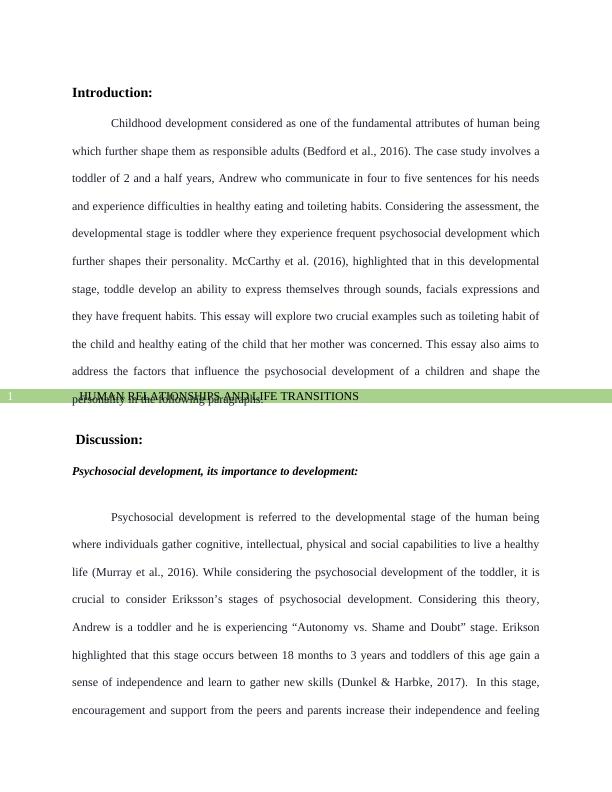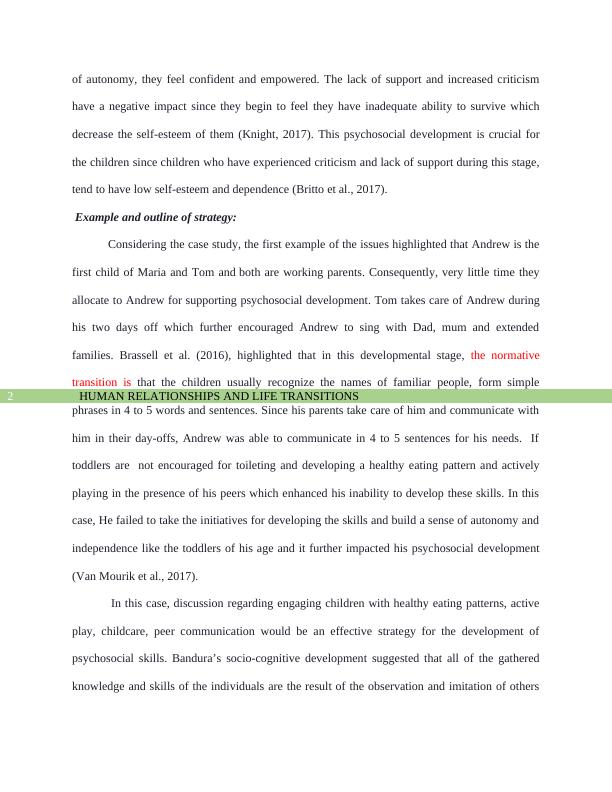Psychosocial Development of Toddlers: A Case Study of Andrew
Explore the psychosocial development of children, focusing on a case study of a 2 and a half-year-old attending day care while his mother works part-time.
9 Pages2298 Words192 Views
Added on 2022-10-31
About This Document
This essay explores the psychosocial development of toddlers through a case study of Andrew, a 2.5-year-old toddler who experiences difficulties in healthy eating and toileting habits. It discusses the factors that influence psychosocial development and suggests strategies to encourage toddlers in developing independence and autonomy.
Psychosocial Development of Toddlers: A Case Study of Andrew
Explore the psychosocial development of children, focusing on a case study of a 2 and a half-year-old attending day care while his mother works part-time.
Added on 2022-10-31
ShareRelated Documents
End of preview
Want to access all the pages? Upload your documents or become a member.
Human Development and Life Transition Issues Assignment 2023
|9
|2034
|48
Human Relationship and Life Transitions - Psychology
|6
|1538
|277
Human Development Case Study 2022
|7
|2181
|18
Psychological Development of a Child Assignment 2022
|8
|2019
|19
Human Development Research Paper 2022
|6
|1707
|12
Applicability of Erikson’s Theory of Psychosocial Development in Child Development
|6
|1563
|288



